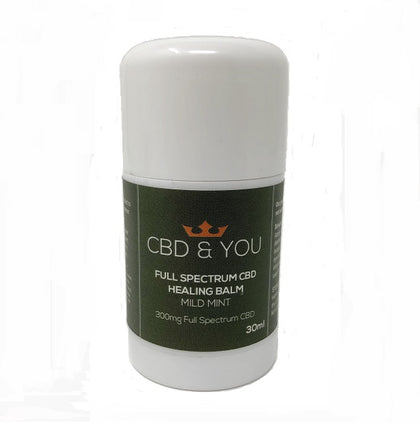Wylde Blogs
Use CBD for... Mental Health

Do you want to know more about CBD for Mental Health? CBD for anxiety, depression, addiction and other mental health issues? Then read on and discover more with us on Mental Health Awareness Day 2018...
It is World Mental Health Day for awareness across the globe on mental health education and advocacy against social stigma. Mental health problems affect around one in four people in any given year. They range from common problems, such as depression and anxiety, to rarer problems such as schizophrenia and bipolar disorder.
For further information on World Mental Health Day please visit Mind and the Mental Health Foundation.
What is CBD?
CBD (Cannabidiol) is a natural component of the hemp plant and has shown to have multiple effects on the human body with therapeutic properties. Please read our 'What is CBD?' guide for further information.
Before we look into detail about CBD and specific Mental Health issues, we encourage you to do your own research and if you are currently taking medication for mental illness, please consult with a qualified GP/physician before adding CBD into your lifestyle.
It is important to note that studies have found marijuana could promote anxiety and psychotic effects but generally, this relates to the use of the plant containing high to extremely high levels of THC. In contrast, CBD has been shown to reduce the psychoactive effects of THC and if you are doing your own research then please look for studies on CBD (Cannabidiol) rather than 'marijuana' as a whole.
Psychosis
A recent news article from The Independent reported on how CBD could potentially be used to help treat symptoms of psychosis. A study by King's College London found that even a single dose of CBD could significantly reduce the abnormal brain activity of psychotic effects.
Furthermore, another study on young people with early symptoms of psychosis had a greatly reduced brain abnormality after taking CBD. This has lead to further clinical trials to see if CBD can replace conventional antipsychotic drugs.
Anxiety
Anxiety is a common mental health issue with various disorders. Ongoing research in the last decade has produced fascinating results that CBD can help sufferers manage their anxiety.
In 2010, a small clinical trial with people who have SAD (Social Anxiety Disorder) found that cannabidiol helped reduce symptoms of social anxiety. The experiment was on SFPT (Simulation Public Speaking Test) and those who suffered from SAD, showed changes in blood flow to the brain. It was concluded that CBD reduces anxiety in SAD and that this is related to its effects on activity in limbic and paralimbic brain area. Tests checked skin conductance, arterial blood pressure and heart rate, which were all lower than participants with SAD (who were not given CBD). Participants also reported that they ‘felt better' within their selves too.
Another study in 2015 concluded that CBD could be effective in reducing a number of anxiety disorders including PTSD, GAD, PD, OCD and SAD.
Depression
Symptoms of depression are often related to anxiety and like the studies mentioned above, there has also been research conducted on the possibility of CBD being used as an anti-depressant instead of conventional drugs.
Studies have shown a link between CBD consumption causing receptor 5-HT1A in the brain, which releases serotonin, to fire more effectively. Serotonin is the chemical in the body that impacts your emotions and motor skills, as well as being interlinked with sleeping, eating and digestion
Like the brain scans in the study for anxiety, researches found that CBD can impact the hippocampus, a small part of the brain that controls our limbic system - the control panel for our fears, emotions, anger, sexual appetite, hunger and even care of children. The hippocampus becomes smaller when you suffer from depression and anxiety. Consumption of CBD however, can stimulate neurogenesis for the brain to create new neurons.
This is relative to the ECS (Endocanabinoid System) as mentioned in our 'What is CBD' guide. The ECS acts as a control panel around your body for everything to function in a balanced equilibrium.
We are excited to see further research on CBD being used as an anti-depressant which could eliminate the use of conventional medicines that can have addictive properties or ill side effects.
Stress, Sleep and Cognitive Function
CBD could also help relieve general stress and even more important stress to those who suffer from mental illness. A recent study on 10-year-old girl with sleep issues related to anxiety and PTSD issues concluded that CBD gave her a "steady improvement in the quality and quantity of sleep."
Sleep is a big issue with poor mental health, either not getting enough or too much. Poor sleep cycles can then cause other issues like mood imbalances, social problems and poor diet.
Cognitive impairment is a big factor for most types of mental illnesses and whilst most studies on this have been in relation to psychosis and schizophrenia, CBD could have a wider benefit. For example, an improved cognitive function could help the sufferer identify daily triggers that lead to their mental health issues, or improve decision making, general mood and well being.
One of the most common ailments that CBD is used by our customers is to improve their sleep. Take a look at our Testimonial page to read some real-life reviews from fellow CBD users.
Addiction
CBD has been shown to benefit addiction sufferers in reducing both cravings and relapses, with alcohol, cigarettes and stronger substances. Further research has found Cannabidiol can balance emotional memory processing which has huge advantages in remission.
General Well Being
CBD can be used for general well being rather than for specific ailments. We all have an endocannabinoid system and CBD can help maintain this system to run effectively. We are excited by the prospect of CBD being able to benefit those who suffer from mental health issues and today is very important to look at these issues more closely. If you know anyone suffering from mental illness, of any kind then reach out to them and let them know you are there for support. It's good to talk.

